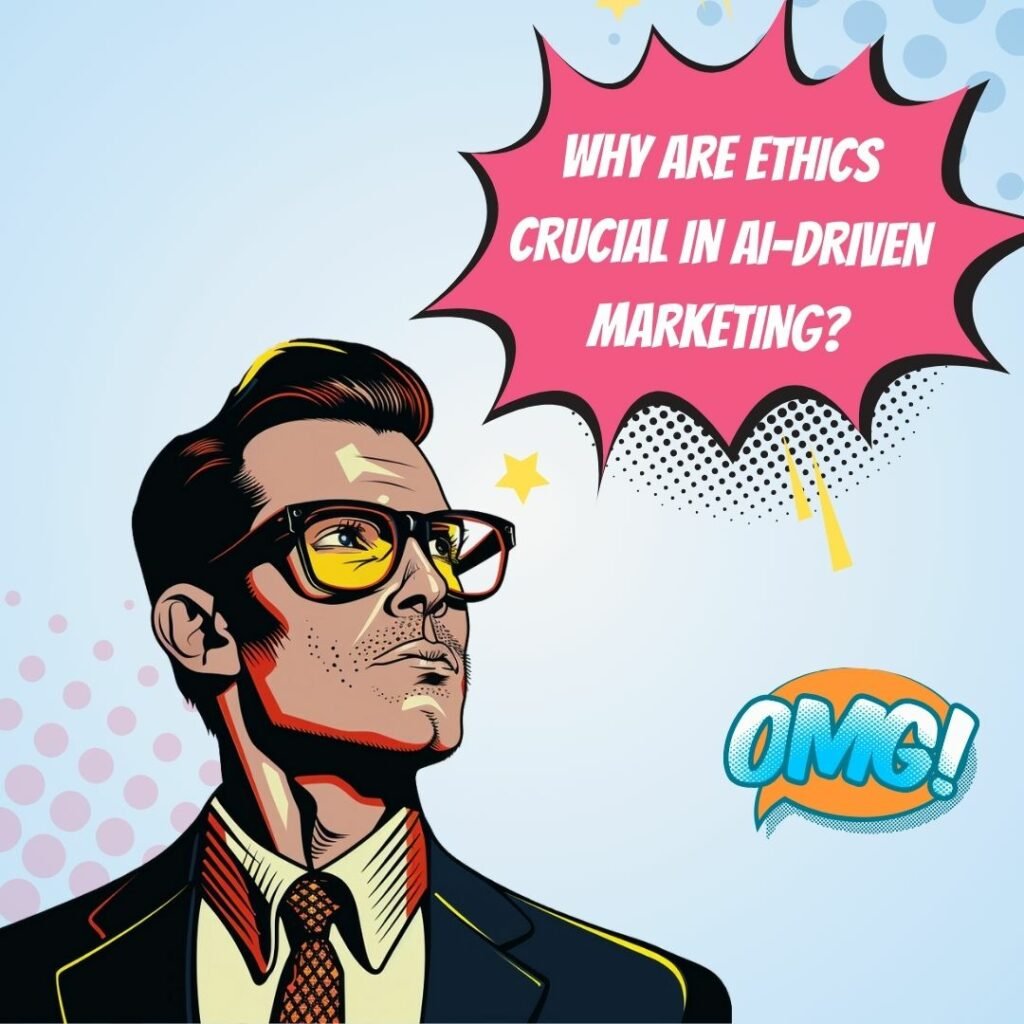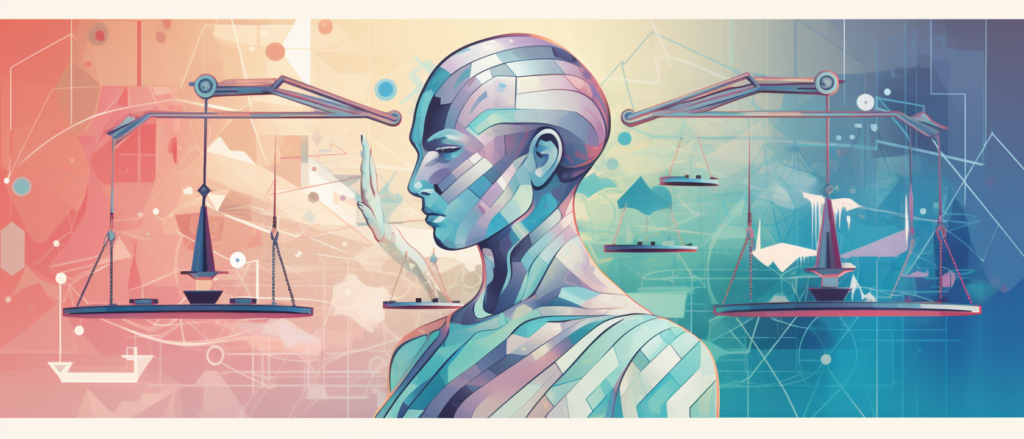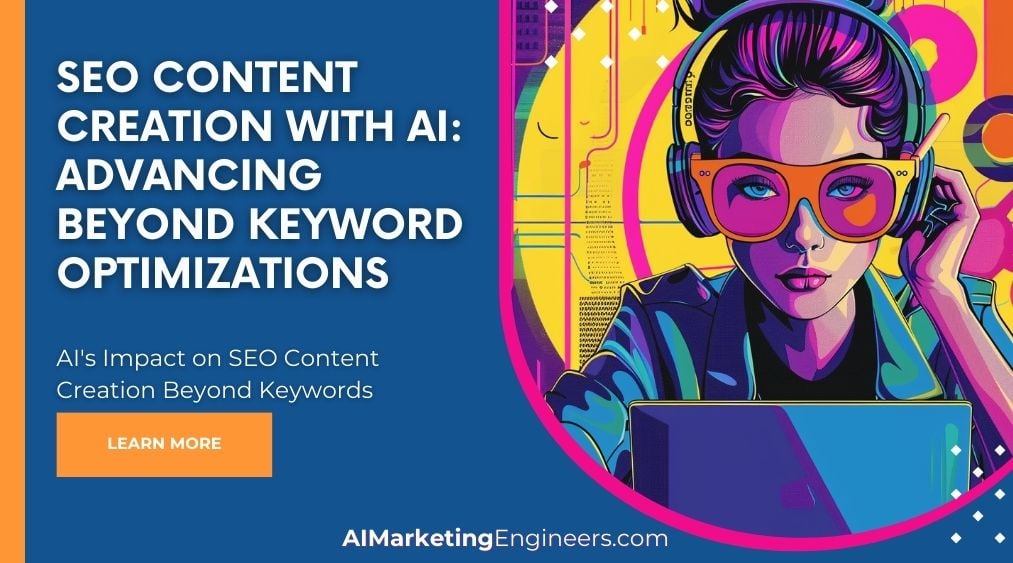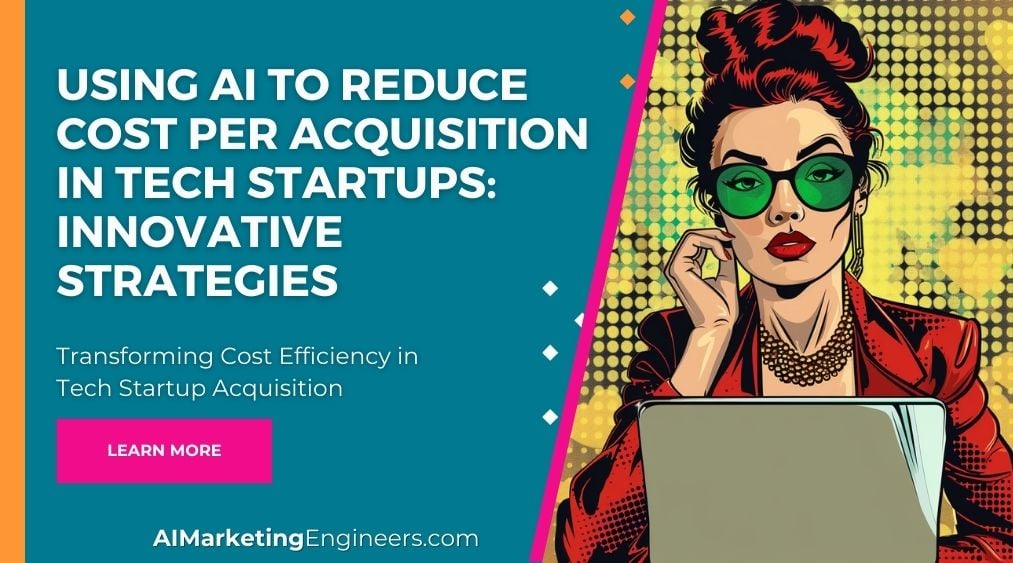Key Takeaways
✅ Responsible AI in marketing is more than a buzzword: It's a commitment to transparency, fairness, and accountability that can safeguard consumer trust while harnessing AI’s transformative potential. Firms that excel here shine in brand reputation and loyalty.
✅ Bias mitigation is the cornerstone of equitable AI in marketing: Through diversity in datasets and vigilant oversight, marketers can steer clear of unconscious biases, ensuring that their AI tools are as fair as they are sophisticated.
✅ Prioritizing consumer privacy and data protection isn’t just ethical—it’s strategic: Compliance with regulations and robust security not only fortify consumer trust but also fortify the enterprise against disruptive breaches.

Introduction
In an era where AI-driven marketing serves as the vanguard of innovation, compelling ethical considerations have emerged, commanding the attention of leaders and consumers alike. A dual-focused lens on Artificial Intelligence and ethics reveals a pivotal crossroad in modern marketing: one that intertwines cutting-edge personalization with the imperative to respect consumer privacy and fairness. As these fields converge, marketers are propelled into a new frontier, armed with the potential to drive revenue growth, enhance ROAS, and optimize ROI in unprecedented ways.
But it’s not just about leveraging these technological advances; it’s about pioneering them responsibly. Here, we’ll dissect the integration of ethical AI in marketing, unearthing the fine balance between aggressive data strategies and the sanctity of consumer trust. Delve into real-world examples, regulatory insights, and bias mitigation techniques that have revolutionized business ethics.
As we tease apart the layers of this multifaceted topic, anticipate actionable insights that will invigorate your approach, paving the way for not only financial success but for setting the gold standard in ethical marketing practices. Let’s embark on this journey to unravel the resources and strategies that will place you at the pinnacle of the digital marketing realm—with a conscience.
Top Statistics
| Statistic | Insight |
|---|---|
| Global AI in Marketing Market Size: Expected to reach $46.5 billion by 2028, growing at a CAGR of 29%. | The explosive growth of the AI market is a trending innovation that businesses need to leverage for competitive advantage. |
| Adoption Rates: In 2021, 37% of marketers reported using AI-powered tools, up from 29% in 2018. | Marketers who embrace AI tools are finding new pathways to engage effectively with their audience, suggesting a pivot point for marketing strategies. |
| Personalization: 58% of marketers plan to increase their use of AI for real-time personalization over the next year. | Real-time personalization is not just a trend; it is integral for cultivating brand loyalty, indicating the potent intersection of AI and customer engagement techniques. |
| Customer Experience: AI can improve customer experience by enabling faster response times, more accurate recommendations, and better targeting. | Leveraging AI for enhanced customer experience is crucial for businesses aiming to foster customer retention and increase acquisition rates. |
| Data Privacy Concerns: 85% of consumers want transparency in how their data is used by companies engaging with AI technology. | The imperative for ethical use of consumer data underscores the need for transparent and responsible AI systems, aligning with consumer expectations and legislative trends. |
The Rising Role of AI in Marketing
Artificial Intelligence has become the backbone of modern marketing strategies, driving unprecedented growth and customer insights. Personalizing customer experiences with AI has allowed e-commerce marketers to craft messages and offers that resonate on an individual level. Major brands are using AI to automate customer interactions, even predicting purchasing behavior with powerful data analysis. These innovations not only streamline operations but also enhance the customer journey, solidifying the bridge between data intelligence and human intuition.
Understanding Ethical Concerns in AI Marketing
Ethical concerns surface when we examine the depth of consumer privacy breached by AI’s extensive data collection. There’s a rising demand for transparency in how data informs AI and subsequently, marketing strategies. The ethical use of AI also demands accountability, ensuring that businesses can justify their algorithmic decisions to their consumer base. Lastly, fairness must be a staple, guaranteeing that AI doesn’t inadvertently marginalize any groups through biased outputs.
Bias Mitigation Strategies for Responsible AI Marketing
AI systems, inherently neutral, can manifest biases based on the data they process. It’s imperative to recognize these potential biases and enact bias mitigation strategies. Employing diverse datasets that are representative of all customer demographics is crucial, as is establishing human oversight to monitor and evaluate AI decisions. This dual approach ensures that AI marketing remains both effective and equitable, maintaining the delicate balance between technological advancement and human values.
Regulatory Landscape and Best Practices
The regulatory frameworks such as the General Data Protection Regulation (GDPR) and the California Consumer Privacy Act (CCPA) set the stage for data protection and privacy. These regulations enforce best practices in the handling of consumer information, ensuring that businesses maintain consent and provide clear data usage policies. For e-commerce businesses venturing into AI, adherence to these legal standards is not just recommended but vital for sustainable growth.
The Future of AI, Ethics, and Marketing
Looking forward, we can predict a surge in AI-enabled marketing initiatives that place ethics at their core. Innovations in technology must evolve hand-in-hand with ethical guidelines, securing customer trust as a foundational element. Advocating for responsible practices will spearhead industry standards where technology empowers consumers and businesses alike, crafting a future where marketing further transcends into personalized, yet ethically-bound dialogue.
Inspirational Quotes
1. AI is the new electricity – Andrew Ng, Co-founder of Coursera and former Chief Scientist at Baidu
Andrew Ng’s electrifying assertion channels the air of an e-commerce renaissance—AI is not just an add-on, it’s the very current powering modern business innovation. As you pilot your e-commerce venture, recognize that artificial intelligence is a catalytic force that, when harnessed ethically, promises to unlock unimagined efficiencies and personalized customer experiences.
2. Technology is neither good nor bad; nor is it neutral. – Melvin Kranzberg, Professor Emeritus of History of Technology at Georgia Institute of Technology
Melvin Kranzberg’s wisdom is a beacon guiding us through the ethical maze of technological application in e-commerce. Grasp the inherent power of AI tools at your disposal, but proceed with careful consideration of their broader impact on society. This quote is a call to action—a reminder to strive for innovation that respects ethical boundaries and builds trust with your customer base.
3. Marketing is no longer about the stuff you make but about the stories you tell. – Seth Godin, Author and Entrepreneur
In the arms race of e-commerce, where AI and data analytics are reshaping the battlefield, Seth Godin’s words are a timeless strategic ally. Storytelling is more than a mere marketing tactic—it’s the soul of your brand. Let artificial intelligence amplify your narrative, not override it. Use these technological advancements to deepen connections with your audiences in ways that are both meaningful and responsibly crafted.
AI Marketing Engineers Recommendation
Recommendation 1: Implement Transparent Data Collection Practices: In an age where data is the cornerstone of effective marketing, transparency isn’t just ethical—it’s expected by consumers. According to a 2021 Pew Research Center survey, 52% of Americans have decided not to use a product or service due to concerns about personal data collection. As an AI Marketing Engineer, it’s pivotal to champion clear communication about how customer data is gathered, used, and protected. Utilize AI-driven tools that offer easy-to-understand privacy policies and consent protocols, ensuring that your customers feel respected and secure.
Recommendation 2: Curate Ethical AI Content Creation: Content is king, yet in the realm of AI, it should also wear the crown of ethics. With the rise of AI-driven content creation tools, it’s tempting to harness their efficiency, but crucial to maintain a human touch. As per Gartner’s 2020 Hype Cycle for Digital Marketing, content creation using AI is on the path to reaching the plateau of productivity within two to five years. Employing tools like OpenAI for copywriting or Canva’s AI-assisted design features should enhance human creativity, not replace it. Strive for a balanced strategy where AI-generated content upholds your brand’s ethical standards and voices while offering personalized and valuable interactions with your audience.
Recommendation 3: Leverage Ethical AI-Driven Analysis for Consumer Insights: Leveraging AI for consumer insight analysis offers unprecedented capabilities in targeting and personalization, but the ethical implications are extensive. By utilizing AI platforms such as Pecan.ai or MonkeyLearn which emphasize ethical AI practices, you can analyze consumer behaviors and preferences responsibly. These innovative tools can help parse through vast quantities of data, discern patterns and deliver insights while ensuring the algorithms employed do not perpetuate biases or infringe on privacy. By using such responsible AI tools, companies can both respect ethical boundaries and harness big data to craft predictive models that enhance customer experience and business outcomes, striking a balance between ethics and efficacy in marketing.
Conclusion
As we reflect on the powerful synergy of AI, Ethics, and Marketing, one thing is clear: the onus is on us—the marketers, the technologists, the innovators—to steer this ship with a moral compass as much as a commercial one. We have journeyed through the transformative role AI plays in crafting personalized, data-driven campaigns, the ethical quandaries that surface with such deep consumer insights, and the call for fairness and transparency in every algorithmic touch.
In this dynamic marketing landscape, we have also unpacked the necessity for robust bias mitigation strategies, recognizing that responsible AI is not only about the data it feeds on but also the diverse hands and minds that mold it. The regulatory frameworks like GDPR and CCPA are not just hurdles but beacons that guide our industry towards a more trustworthy practice.
We’ve seen success stories, companies that have not only astride the wave of innovation but done so with an ethical blueprint—proving that profitability and principles are not mutually exclusive. Indeed, these case studies are the narratives that can inspire a whole generation of marketers to blend ethical considerations with cutting-edge AI.
FAQs
Question 1: What is Artificial Intelligence (AI)?
Answer: AI refers to the development of computer systems capable of performing tasks that typically require human intelligence, such as learning, problem-solving, decision-making, and language understanding.
Question 2: How does AI impact marketing?
Answer: AI can improve marketing by analyzing customer data to create personalized experiences, optimizing ad targeting, enhancing chatbots for better customer service, and predicting consumer behavior patterns.
Question 3: Why are ethical considerations important in AI marketing?
Answer: Ethical considerations ensure fairness, transparency, privacy protection, and accountability when using AI in marketing, preventing potential harm from biased algorithms, misuse of personal data, and unintended consequences.
Question 4: What is algorithmic bias in AI marketing?
Answer: Algorithmic bias occurs when AI systems make unfair or discriminatory decisions due to flawed data, unconscious human biases in the development process, or insufficient testing and evaluation.
Question 5: How can marketers ensure responsible AI use?
Answer: Marketers can ensure responsible AI use by prioritizing transparency, testing for bias, safeguarding privacy, and incorporating ethical AI principles into their strategies.
Question 6: What are some best practices for AI-powered personalization in marketing?
Answer: Best practices for AI-powered personalization include obtaining clear consent from customers, being transparent about data usage, using AI to enhance customer experiences rather than manipulate them, and regularly auditing AI systems for potential biases.
Question 7: How can AI help with content marketing?
Answer: AI can help with content marketing by generating personalized content, optimizing content for search engines, analyzing customer feedback, and predicting content trends.
Question 8: What are the potential risks of using AI in marketing?
Answer: Potential risks of using AI in marketing include algorithmic bias, privacy violations, misuse of personal data, and the potential for AI systems to make unethical decisions without human oversight.
Question 9: How can marketers stay up-to-date with AI developments and trends?
Answer: Marketers can stay up-to-date with AI developments and trends by following AI industry news, attending conferences and workshops, engaging in online communities, and collaborating with AI experts.
Question 10: What are some resources for learning about AI and its ethical considerations in marketing?
Answer: Resources for learning about AI and its ethical considerations in marketing include academic journals, industry reports, online courses, professional associations, and books by experts in the field.
Academic References
- McCarthy, J. (2007). Ethical Artificial Intelligence: Issues and Implementations. In A. Artikis, J. Pitt, & M. Sergot (Eds.), Declarative Agent Languages and Technologies V (pp. 1-15). Springer. This seminal paper posits the ethical challenges AI systems may encounter within marketing contexts, suggesting a robust framework that addresses the potential risks tied to AI applications.
- Kambil, A., Friesen, G. B., & Sundaram, A. (2020). Ethical Challenges in the Use of Artificial Intelligence for Marketing. Journal of Information, Communication and Ethics in Society, 18(3), 369-380. The authors dissect crucial ethical risks in AI-assisted marketing and advance strategies to harness AI’s power responsibly, with a keen eye on transparency, privacy, and fairness.
- Bodewes, M., & Piersma, N. (2019). The Ethics of Artificial Intelligence in Marketing. Journal of Business Research, 99, 215-222. Here, Bodewes and Piersma present a thorough framework designed to evaluate the ethical impacts of AI in marketing, delineating its capacity for manipulation, privacy breaches, and discrimination alongside strategies for its principled deployment.
- Bart, Y., & Netzer, O. (2018). Artificial Intelligence and Marketing: A Framework for Analysis. This article’s essence lies in its strategic framework, which explicates AI’s implications on marketing and underlines the importance of ethical considerations.
- Dolnicar, S., & Grün, B. (2019). The Ethics of Artificial Intelligence in Marketing: A Systematic Literature Review. Journal of Business Research, 105, 5–14. Through a meticulous literature review, Dolnicar and Grün chart the ethical landscape of AI marketing, pinpointing prevailing themes and exposing research lacunae poised for future exploration.













